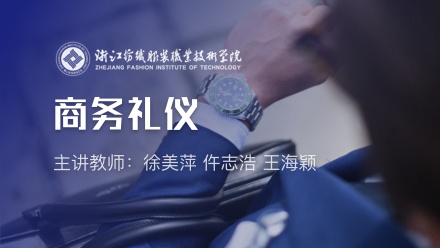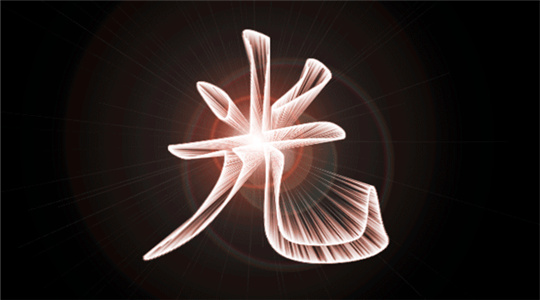
当前课程知识点:Research Methods in Tourism Studies > Week 3 Research Design I > 3.5 Using Conceptual Framework in Qualitative Research > 3.5.1 Using conceptual framework in qualitative research(1)
返回《Research Methods in Tourism Studies》慕课在线视频课程列表
返回《Research Methods in Tourism Studies》慕课在线视频列表
大家好 在上一节中
我们知道了如何使用直接编码进行与关于酒店的研究
我们继续进行探讨
因此 在本部分中
我们想分享如何使用概念化技能进行定性研究
在本节中
我们想与大家分享我们发表在《旅游管理》上的一项研究
标题是《社会接触中的旅游类型学 对现有理论的补充》
在本论文中
我想展示如何在研究中使用概念化技能
这是要遵循的大纲
作为重点
我想强调这两个部分
即概念框架和研究结果
我们从前言开始
进入目的地时 游客被社会环境所包围
想象一下你的旅行
当你进入目的地时
你和当地居民交流过吗
你做了什么
你的旅行经历如何
那么 你做了什么
你对自己与他人互动的经历有何感想
这也是我们进行这项研究的兴趣所在
好吧 在我们进行初步的文献回顾后
我们发现很少有研究强调游客丰富的社交行为模式
我们觉得我们需要更关注多维旅游类型
在此案例中
本研究的目的是对主-客社会接触的维度进行探讨
并根据旅游者在各个维度上的特征对其进行分类
现在我们进行文献综述
首先 我们回顾了现有的有关社会交往的论文
尤其是主客之间的互动
说到这里
我们应该对这些社会背景研究进行维度比较
如本表所示
这里是社会交往的多维或单维度研究来展示所有现有的研究
如我们在这里可以看到的
从1978开始
Rothman的研究使用一维活动来表示社会交往
随着研究的发展
我们发现有了更多相关的研究
他们使用不同的维度来表示接触
例如 他们有接触点的数量
频率质量 强度
其他因素的影响
经过比较
我们发现这些关于社会接触维度的研究并不一致
这也是为什么我们要进行自己的研究
在旅游研究中找到社会交往的维度
这是概念框架部分
并不是每一篇论文都包含了这一部分
但我们觉得使用这一内容非常重要
它展示了我们现有框架的发展过程
因此 让我们从头开始
我们从Cohen于1972年提出的社会接触理论开始
而从他的研究中
我们可以发现
他所提到的社会交往的程度 影响 多样性都可以决定社会交往的结果
然后根据Cohen的研究
我们试图将我们在最后一张幻灯片中显示的
现有维度与他的模型拟合
这就是我们在这里得到的
这样我们就可以确定因果联系程度的目的 决定因素 强度
影响和态度也与社会交往的影响相适应
而且我们也有属于各种社会交往的活动
更进一步
就目前的当前研究而言
我们将时间序列纳入该模型
因此 在这种情况下
我们拥有事前联系 联系中以及事后联系
因此 在这种情况下
我们再次采用这些维度
就像在模型上洗牌一样
例如 在接触之前
我们有了社会接触的目的和决定因素 对吧
在接触过程中
我们会进行接触活动以及会有社会接触的不同强度
与这些人接触后
最后我们会产生影响和态度
这就是我们从先前研究中形成的框架
它是关于发展发生的不同阶段
好的 现在让我们转向方法论
在本研究中
我们主要关注解释范式
这意味着我们认为现实是由社会中的个人创造的
如果我们能记住这些范式的差异
就可以记住他们认为没有单一真理的解释主义
因此 这就是为什么我们决定使用深入的面对面访谈的原因
我们尝试从不同的个人那里收集信息
在这项研究中
我们以最近访问过内地的香港永久居民为样本
这是访谈的内容
首先 我们请受访者回忆他们最近到内地旅行的经历
然后让他们记住访问期间与内地居民的联系
之后 我们试着让他们具体说明
他们对自己社会交往的目的 影响 决定因素
与内地居民的社会接触强度和态度的看法
最后 我们要求他们向我们提供他们的人口信息
当信息饱和时
我们不再邀请新的受访者
结果 我们进行了45次访谈
每次访谈的时间从26分钟到88分钟不等
所有这些采访都是用广东话进行的
广东话是我们所有受访者的母语
对于这些文本数据
我们尝试使用NVIVO来管理和分析它们
就像进行定量研究一样
我们也需要确保定性研究的信度
例如 我们要覆盖这四个维度
我们需要确保可信性 可转移性 可靠性和可确认性
例如 对于可信度三角测量是一个很好的工具
在三角测量中
我们有数据三角测量 研究三角测量和理论三角测量
由于这不是本单元的重点
如果您对这部分有兴趣
欢迎阅读我们的全文
-1.1 Research Question and Research Objectives
--1.1.1 Student interview before class
--1.1.2 The starting point: question
--1.1.3 What is a good research question?
--1.1.4 Ways to find a good research question
-1.2 Title Design
--Acticle: Leisure & Travel as Class Signifier: Distinction Practices of China's New Rich
--Discussion: Why do we research?
-1.3 Literature Retrieval Method and Literature Databases
--1.3.1 Common literature retrieval method
--1.3.2 Common literature search database
-1.4 Information Collection and Academic Journals in Tourism
--1.4.1 Academic journals in tourism research
--1.4.2 Literature collection methods and principles
-1.5 Literature Reading
--1.5.2 Overcoming obstacles in literature reading
--Week 1 quiz
--Discussion: What difficulties have you encountered in reading literature?
-2.1 Philosophical Bases of the Two Approaches
--2.1.1 Philosophical bases of the two approaches
-2.2 Differences between the Two Approaches
--2.2.1 Differences between the two approaches
--Article: Does tourist–host social contact reduce perceived cultural distance?
-2.3 Be Aware of Your Own Research Views
--2.3.1 Be aware of your own research views
--Discussion: How to choose research method?
-2.4 Research Example: Social Tourism
--2.4.1 What is social tourism?
--2.4.2 Established frameworks on social tourism
--2.4.3 Major research findings on social tourism
--2.4.4 Major findings of social tourism research
--2.4.5 Opportunities and challenges for social tourism
--Week 2 quiz
- 3.1 Key Procedures in Qualitative Approach
--3.1.1 Key procedures in qualitative approach
-3.2 Qualitative Data Collection and Analysis
--3.2.1 Key procedures and data collection methods in qualitative approach
--3.2.2 Data collection and analysis in qualitative approach
--3.2.3 Data analysis in qualitative approach
-3.3 Case Study and Content Analysis
--Discussion: Have you ever used a qualitative approach in your research?
-3.4 Using Coding and Themes in Qualitative Research
--3.4.1 Using coding and themes in qualitative research(1)
--3.4.2 Using coding and themes in qualitative research(2)
-3.5 Using Conceptual Framework in Qualitative Research
--3.5.1 Using conceptual framework in qualitative research(1)
--3.5.2 Using conceptual framework in qualitative research(2)
--Article: Tourist typology in social contact: an addition to existing theories
--Week 3 quiz
--Discussion: How to ensure the reliability and validity of qualitative study?
-4.1 Using Questionnaires in Quantitative Research
--4.1.1 Make an effective literature review and research method design
--4.1.2 Learn to write powerful findings and discussion
-4.2 Using Experiment in Quantitative Research
--4.2.4 Eye tracking experiment
-4.3 Using Mixed Method
--4.3.1 Sustainabble tourism development (1)
--4.3.2 Sustainabble tourism development (2)
--Article:Creating a scale for assessing socially sustainable tourism
--Week 4 Quiz
--Discussion: How to use quantitative methods to study tourists' reaction?
-5.1 Current Research Priorities
--5.1 1 A review of hospitality research
--5.1.2 Impact of information technology on hospitality and tourism research
-5.2 Multi-Level/ Multiple Sources of Date Collection
--5.2.1 Experimental design (1)
--5.2.2 Experimental design (2)
--5.2.3 Multi-level/multiple sources of data collection
-5.3 Mixed Method and Interdisciplinary Research
--5.3.2 Interdisciplinary research
--Article: The meanings of destination: a Q method approach
--Discussion: Can you talk about your understanding of research methods?
-5.4 Using Delphi Method in Research Design
--5.4.1 What is the Delphi method?
--5.4.3 Characteristics of the Delphi method
--5.4.4 Predicting the future of wine tourism
--Week 5 quiz
--Discussion: Philosophical basis of research methods
-6.1 Journal Publication
--6.1.1 How to publish in the top journals? (1)
--6.1.2 How to publish in the top journals? (2)
--6.1.3 How to publish in the top journals? (3)
--6.1.4 How to publish in the top journals? (4)
--Article: Analyzing the economic sustainability of tourism development: evidence from Hong Kong
-6.2 Academic Ethics
--6.2.2 Student interview after class
--Week 6 quiz
--Discussion: Academic publication and academic ethics
--Final quiz


